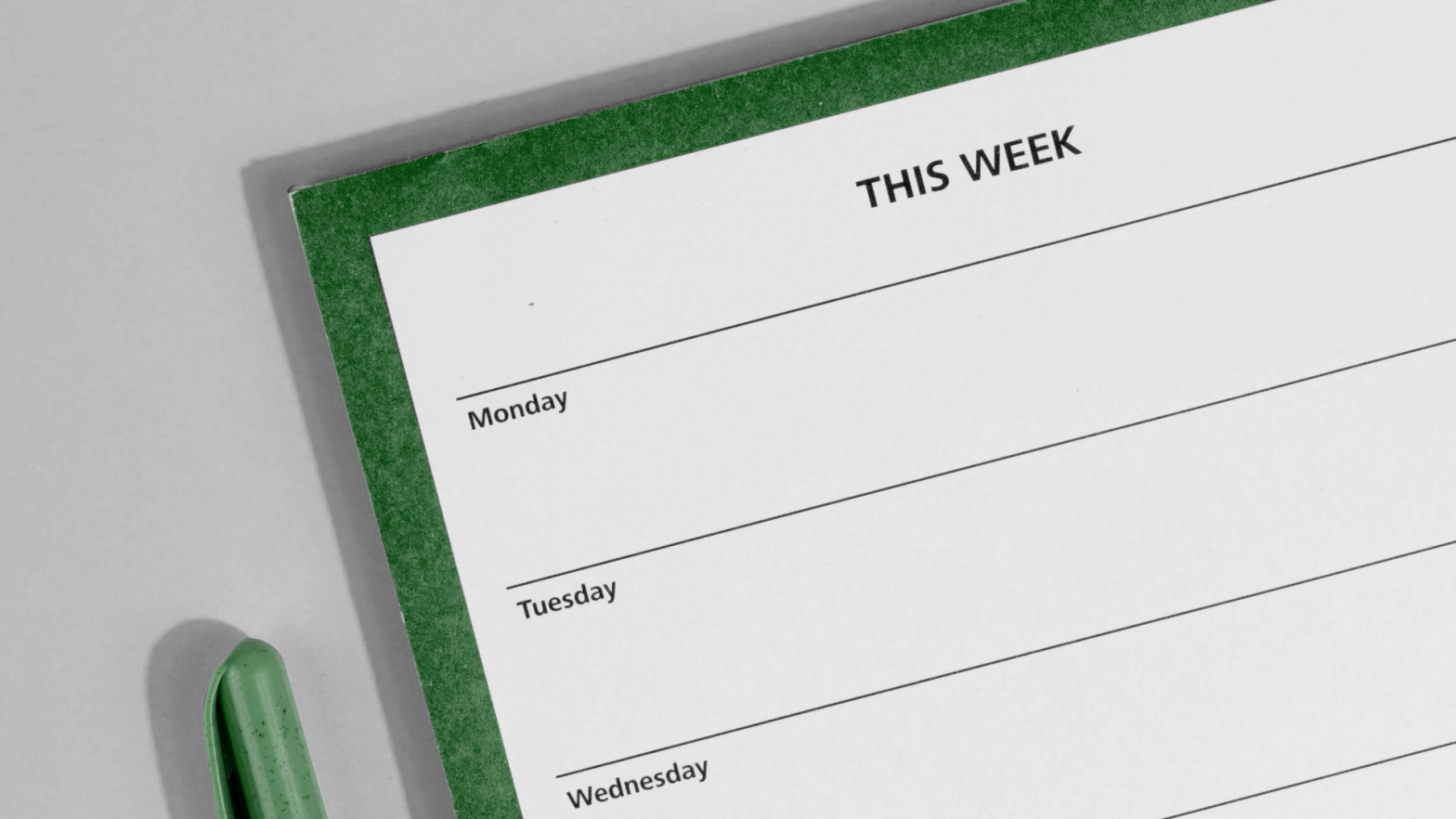The first time I went to Germany was during the summer right after highschool graduation. I wanted to go to college to study philology and decided that I needed to take my German to the next level. I never would have thought that the days of the week in German would cause me so much trouble.
For the first few days of the trip I felt very lonely, so I went out alone to a concert. I met a girl there named Sydney. We had a great time together, so I was happy when she said: “Hey, this Tuesday we are going to the cinema with friends. Would you like to come with us?”
I agreed, obviously, and we arranged to meet outside the cinema. I waited impatiently for Tuesday. Unfortunately, when I arrived, there was a big disappointment waiting for me there. Sydney did not come. I texted her and quickly realized my mistake. I had mistaken Tuesday (Dienstag) for Thursday (Donnerstag)! Fortunately, this mistake had no bad consequences, but what if I had made a mistake when arranging a job interview or buying a train ticket, for example?
Knowing the days of the week is a key part of learning a language, and it’s definitely worth taking the time to learn them well. In this article you’ll find vocabulary for time expressions and a proven way to learn it. Let’s get started!
Let’s start at the beginning – days of the week and their abbreviations in German
One of the first phrases a person learning a foreign language learns is Good morning! – in German, Guten Tag! Der tag means “day.” Let’s add a new word, die Woche (week); when combined, we get die Wochentage – the days of the week. It makes sense, doesn’t it? And in addition, you already knew half of the term!
In Germany, as in the UK, the week begins with Monday (that’s not so obvious at all!). To begin with, let’s list the days of the week in German below with their translations:
| German | English |
|---|---|
| der Montag | Monday |
| der Dienstag | Tuesday |
| der Mittwoch | Wednesday |
| der Donnerstag | Thursday |
| der Freitag | Friday |
| der Samstag | Saturday |
| der Sonntag | Sunday |
Note that all days, except Wednesday (Mittwoch), also have a familiar word hidden in the second part of the word – der Tag (day). Monday – der Montag – hides the moon (der Mond), and Sunday – der Sonntag – the sun (die Sonne). In the northeastern part of Germany, you may encounter the use of the name der Sonnabend instead of der Samstag. It literally means the evening (der Abend) before Sunday (der Sonntag). Previously mentioned Wednesday is simply the middle of the week – die Mitte means middle. Note that all the nouns listed above are capitalized. You can read about this and other information about nouns here.
If we want to check on what days a certain café is open, or find out when we can visit an interesting exhibition in a museum, we will almost certainly encounter abbreviations on the information board (but also, for example, in the calendar on the website):
| German abbreviation | German |
|---|---|
| Mo. | Montag |
| Di. | Dienstag |
| Mi. | Mittwoch |
| Do. | Donnerstag |
| Fr. | Freitag |
| Sa. | Samstag |
| So. | Sonntag |
Names of days of the week in German in examples – a great way to master them faster
Thanks to years of research by the Taalhammer team, we have found the most effective method for learning a language. The secret is to learn in whole sentences or phrases. This is the most natural way to learn a language, which you should use if you are anxious to start communicating fluently in a foreign language.
Just knowing the word Freitag or any other day of the week is enough for you to convey the most important information: when something is supposed to happen. If, on the other hand, you want to know how to make a correct appointment for Friday, you need to know how to use the word in a sentence. This is not difficult at all!
Using the words you already know, you can say quite a lot in German. For example, just add the preposition am (am is a combination of the preposition an with the article dem) and we can already make an appointment for a specific day – am Montag (on Monday), am Freitag (on Friday), or more generally am Wochenende (at the weekend). And since the weekend is literally “the end of the week,” what do we call the rest of the week? The days from Monday to Friday (Montag bis Freitag)? An equally logical and simple name – die Arbeitstage or die Werktage (i.e. working days: die Arbeit – work, das Werk – workplace).
All days of the week and months, as well as seasons, are masculine in German, so they will be preceded by the article der. They are also almost always capitalized (der Montag, der Dienstag, etc.). The only exception to this rule is when we are talking about a custom or something that repeats regularly; in this case the word takes on the plural form and is written with a lowercase letter, for example: montags. Here is an example that I always show my students when I tutor: if you’re planning a meeting on Friday, then depending on whether it’s a one-time thing or regular dinners with friends, we’ll structure the sentence slightly differently.
| English | German |
|---|---|
| On Fridays I eat with my friends. | Ich esse freitags mit Freunden. |
| On Friday I am eating with my friends. | Am Freitag esse ich mit Freunden. |
| On Thursdays I have German lessons. | Ich habe donnerstags Deutschunterricht. |
| On Thursday I am going to the cinema. | Ich gehe am Donnerstag ins Kino. |
And what if Friday is tomorrow? Instead of saying what day of the week it is, we can simply say tomorrow – morgen (yesterday is gestern, and today is heute). Earlier I mentioned the word Abend (evening), so we can make our plans for Friday even more specific.
| English | German |
|---|---|
| Tomorrow I am eating with my friends. | Morgen esse ich mit Freunden. |
| Tomorrow evening I am eating with my friends. | Morgen Abend esse ich mit Freunden. |
| Why are you staying at home on a Friday evening? | Warum bleibt ihr am Freitagabend zu Hause? |
| Friday was yesterday. | Freitag war gestern. |
| Today is Saturday. | Heute ist Samstag. |
How about going to the cinema? – it’s good to know the time of the day
It’s also a good idea to memorize the vocabulary for the other times of the day (time of day – die Tageszeit) – after all, you won’t always be scheduled to meet for dinner:
| German | English |
|---|---|
| der Morgen | morning |
| Am Morgen habe ich eine E-Mail geschrieben. | In the morning I wrote an email. |
| der Vormittag | before noon |
| Am Vormittag muss ich mit meinem Hund spazieren gehen. | Before noon I must walk my dog. |
| der Mittag | noon |
| Am Mittag bin ich sehr beschäftigt. | I’m very busy at noon. |
| der Nachmittag | afternoon |
| Am Nachmittag wird es regnen. | It will rain in the afternoon. |
| der Abend | evening |
| Ich lese das Buch am Abend. | I will read this book in the evening. |

Like the days of the week, almost all times of day are combined with the preposition am, such as am Mittag or am Abend. The exceptions here are die Nacht, which combines with the preposition in, and die Mitternacht which combines with the preposition um.
| German | English |
|---|---|
| die Nacht | night |
| In der Nacht habe ich einen seltsamen Traum gehabt. | At night I had a strange dream. |
| die Mitternacht | midnight |
| Um Mitternacht habe ich ein Feuerwerk gesehen. | I saw fireworks at midnight. |
Similarly to the principle described with the days of the week, to emphasize that the activity is repeated, we will use the plural term of time. We form the plural by adding the ending -s. For example:
| German | English |
|---|---|
| Ich dusche immer morgens. | I always take a shower in the morning. |
| Nachmittags gehe ich oft spazieren. | In the afternoon I often go for a walk. |
| Abends lese ich ein Buch. | I read in the evening. |
| Nachts habe ich Angst vor der Dunkelheit. | I’m afraid of the dark at night. |
And how do we say that something will happen tomorrow morning? Tomorrow (morgen) and morning (der Morgen) are written exactly the same. Most often, however, when wanting to say that something will happen tomorrow, one simply uses the phrase am Morgen (in the morning), or morgen früh, meaning early in the morning, as in the first thing in the morning.
What can we say in German using our knowledge of the basic words learned in this lesson? Quite a bit! Take a look at the example sentences in the table below:
| English | German |
|---|---|
| The week has 7 days. | Die Woche hat 7 Tage. |
| Today is Wednesday. | Heute ist Mittwoch. |
| We are seeing each other tomorrow evening. | Wir sehen uns morgen früh. |
| In the afternoon we are going to the cinema. | Am Nachmittag gehen wir ins Kino. |
| It’s the weekend finally. | Morgen ist endlich Wochenende. |
| The weekend is on Saturday and Sunday. | Das Wochenende ist am Samstag und Sonntag. |
| I work on weekdays, from Monday to Friday. | Ich arbeite an den Werktagen, von Montag bis Freitag. |
How to remember the days of the week in German?
Practice makes perfect – what else can I say? It’s not just a slogan. To remember what you’ve learned, you have to use it. And do it as often as possible. There are many learning methods. You can create your own flashcards or learn with an app such as Taalhammer, which offers an algorithm optimized for learning large numbers of words and sentences. Gain confidence and freedom in your vocabulary with our German course. Enjoy effective learning tools that will allow you to consolidate the material and practice at any time.
Good luck in learning German!








